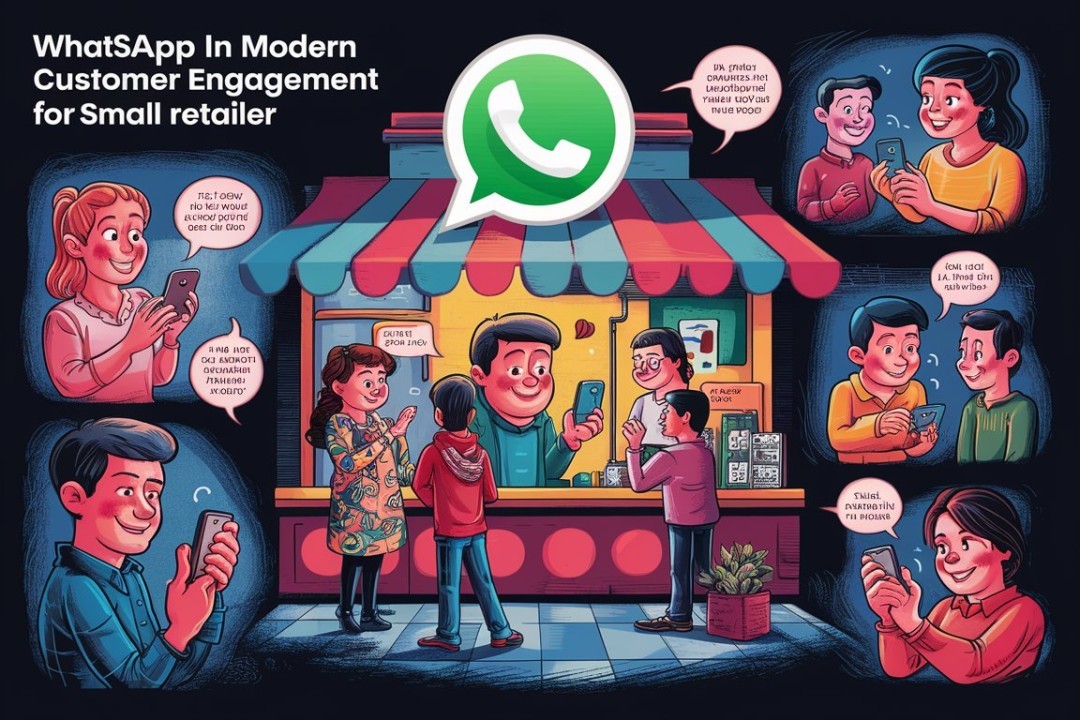
In today’s digital age, effective customer engagement is crucial for the success of small retailers. WhatsApp has emerged as a powerful tool for enhancing customer interaction, thanks to its widespread usage and versatile features. This article explores how small retailers can leverage WhatsApp for better customer engagement. And why integrating this platform into their MarTech stack is essential.
Why WhatsApp?
High User Engagement
WhatsApp boasts over 2 billion users worldwide, making it one of the most popular messaging apps. This extensive user base provides a unique opportunity for small retailers to reach and engage with their customers on a platform they already use frequently. Unlike traditional channels, WhatsApp allows for more personalized and immediate interactions, which can significantly enhance customer satisfaction and loyalty.
Real-Time Communication
One of the key benefits of WhatsApp is its capability for real-time communication. Customers expect quick responses to their queries, and WhatsApp delivers on this expectation. Businesses can use the app to handle customer inquiries, provide support, and send timely updates about orders and services. The ability to communicate instantly helps in building trust and improving the overall customer experience (HubSpot Blog) (REVE Chat).
Versatile Features for Business
WhatsApp Business and WhatsApp Business API offer several features tailored for businesses, such as automated messages, quick replies, and labels to organize contacts and chats. These tools help streamline communication and ensure that customers receive prompt and consistent responses. The ability to create catalogs and showcase products directly within the app also makes it easier for customers to browse and make purchasing decisions (HubSpot Blog) (SleekFlow).
Integrating WhatsApp with Your MarTech Stack
Enhancing CRM Capabilities
Integrating WhatsApp with a CRM platform like EZClick can provide a seamless experience for managing customer interactions. By syncing WhatsApp with CRM, businesses can maintain a comprehensive view of customer conversations and history, allowing for more personalized and informed engagements. This integration ensures that customer data is consistent across all touchpoints. This enhances the overall efficiency of your marketing and support efforts (HubSpot Blog) (ContactPigeon | Blog).
Automation and AI Integration
WhatsApp’s compatibility with chatbots and AI tools allows small retailers to automate many customer service tasks. Automated responses can handle common inquiries, while more complex issues can be escalated to human agents. This not only reduces the workload on staff but also ensures that customers receive immediate assistance (REVE Chat) (ContactPigeon | Blog).
Proactive Customer Engagement
Using WhatsApp, businesses can send proactive messages to keep customers informed and engaged. This includes sending order confirmations, delivery updates, appointment reminders, and promotional messages. Proactive communication helps in anticipating customer needs and provides a higher level of service, leading to better customer retention (SleekFlow) (ContactPigeon | Blog).
Key Takeaways
- Leverage WhatsApp’s Popularity: Use WhatsApp to reach a broad audience and engage with customers on a platform they are already familiar with.
- Real-Time Interaction: Benefit from the app’s real-time communication capabilities to handle customer inquiries and provide support promptly.
- Integrate with CRM: Sync WhatsApp with a CRM platform like EZClick to maintain a comprehensive view of customer interactions and enhance personalization.
- Automate with AI: Use chatbots and AI tools to automate responses to common queries, ensuring immediate customer assistance and reducing the support team’s workload.
- Proactive Communication: Send timely updates and promotional messages to keep customers informed and engaged, improving overall customer experience and loyalty.
By integrating WhatsApp into their MarTech stack, small retailers can significantly improve customer engagement, streamline their operations. This will help them to stay competitive in a rapidly evolving market.
